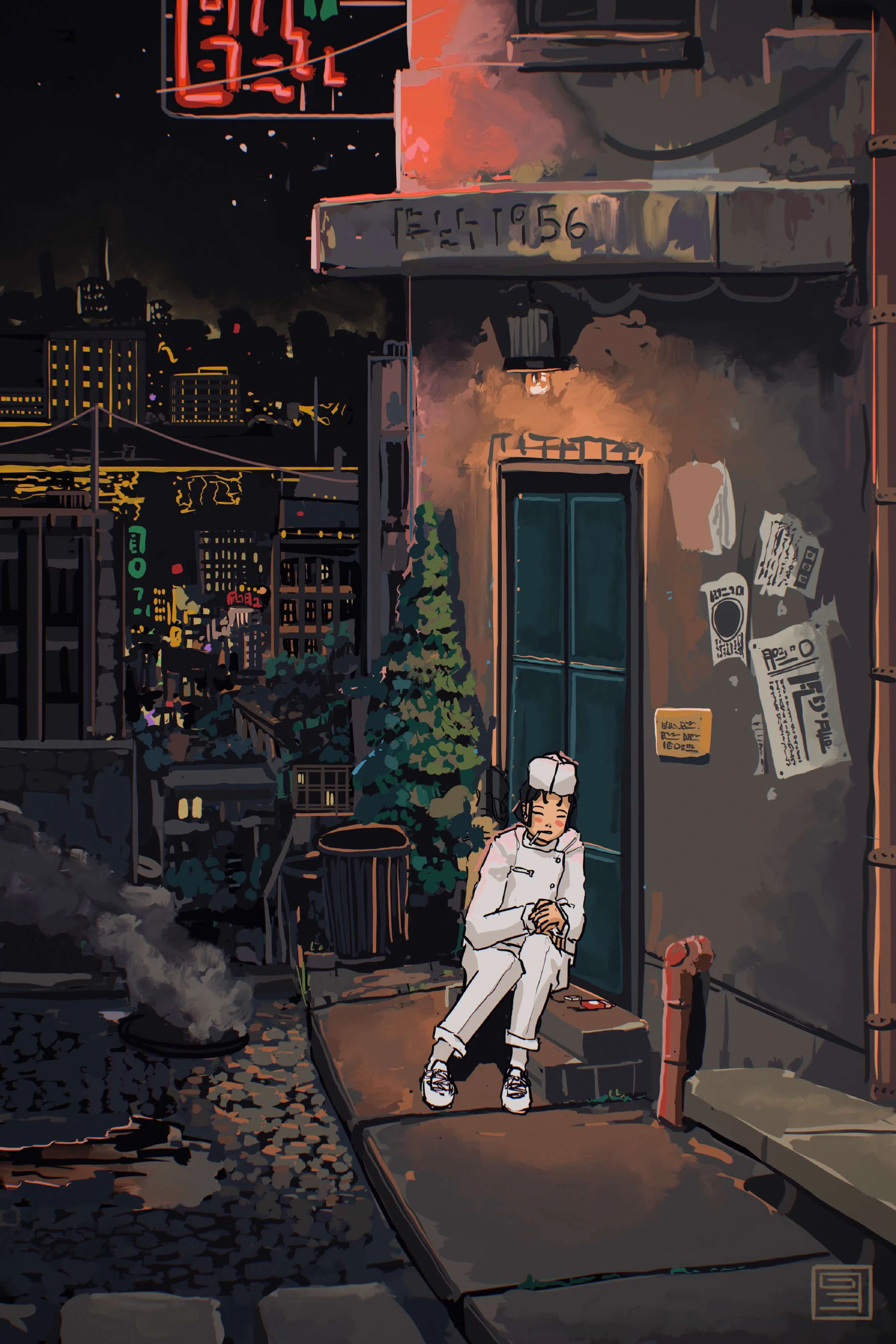NEW Story: Sunday Morning
Full Heart

This article is not part of Vekllei canon. It may be old, obsolete or just a bit of fun.
She’d dropped out of school and had the slow accent of a person too foreign to employ. She now lived in a country that did not use money. Food was everywhere and you ate until you were satisfied. Around each corner was a new cinema or basement lounge, and water trickled through the streets like all mythic garden cities. It was a paradise.
Somehow, despite her new wealth, a panic had set in. School hadn’t worked out and she lived parasitically with a person who hadn’t really expected or wanted to take her. Desperate to justify her presence as an immigrant, she started to cook — first from the TV, then out of books. A year into her new life in utopia, she had the makings of a master home cook, serving hot suppers six days a week. On Sundays Baron made a roast.
Vekllei is the sort of place that rewards attention to common things, and Tzipora soon cultivated a chef’s eye for fresh ingredients and learned how to bargain with grocers for the best produce. She would plan her meals carefully and indulged her Colombian childhood, rediscovering the bandeja paisa and flatbreads of her youth.
She was relaying her sadness at being unemployed one day when Baron asked her “why not become a cook?” Somehow the thought had never occurred to her. She began to walk into restaurants and ask for work — but most restaurants in Vekllei are run by families, and have no interest in expanding their kitchen for teenage foreigners. There was a restaurant two stops away on the Lola Main Line she liked especially: The Bull, or “Toro”, was run by a loud Spaniard called Che who’d opened his kitchen into the dining area, so you could see him cook. He was rude — Tzipora’s native fluency picked up more than your average Vekllei person — but more importantly, he was an excellent, classically-trained chef. In any other city in the world, he might have been celebrated, but here he ran his business beneath a print shop in the artist’s quarter of Lola.
She asked him for work in the kitchen — any work, and he told her no. She finished her meal and left. The next time, he shouted her out of his restaurant. She continued to look around for work, but a quiet stubbornness deep in her heart had convinced her that el Toro is where she wanted to be. She started waiting until closing, where she would ambush him. Six weeks into her courting, Che told Tzipora that she should be sent to an asylum if she wanted to wash dishes so much — but if she would stop bothering him, he would expect her at 2pm the next day.
It was hard work and it was unrewarding work. In her first year she was ostensibly a commis chef in a kitchen of six — but spent more time with her hands in the sink than preparing food. She would occasionally handle ingredients prep too, and had to reach the markets in the early morning to get the best produce or face having a pan thrown at her in the evening. She worked five nights a week from 2pm till the early hours of the morning. Che ran his kitchen like it was in Barcelona. Sometimes she would step out for a cigarette and fall asleep on the stair in the alley, sweat glistening under the streetlamp, cooled by the ocean stir.
Three years into her work at el Toro she would replace the outgoing sous-chef, and her talent as a cook blossomed. It was a peculiar sight, to have someone of Tzipora’s height and appearance shouting at young men, totally secure in her authority. The years of labour had hardened her resolve, and refined her intuition. She wouldn’t be a chef all her life, but she would always be a wonderful cook. In a country of rich foods and hearty wines, that was a precious commodity. More importantly, her persistence in that kitchen earned her place in the country — Vekllei was a land of opportunity, after all. It is one thing to visit paradise, but quite another to be a part of it.
